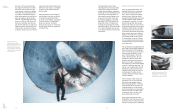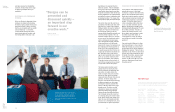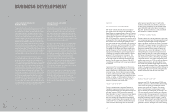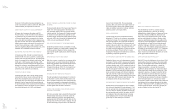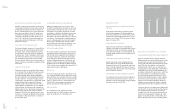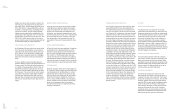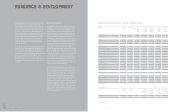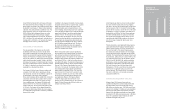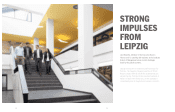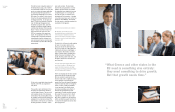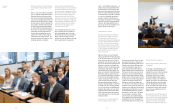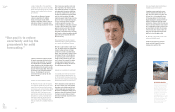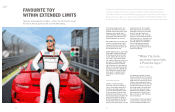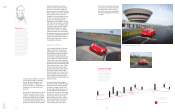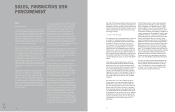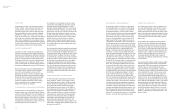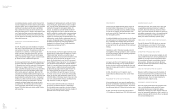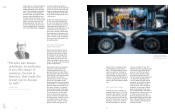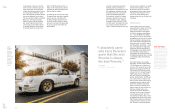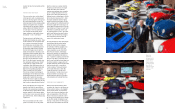Porsche 2014 Annual Report Download - page 33
Download and view the complete annual report
Please find page 33 of the 2014 Porsche annual report below. You can navigate through the pages in the report by either clicking on the pages listed below, or by using the keyword search tool below to find specific information within the annual report.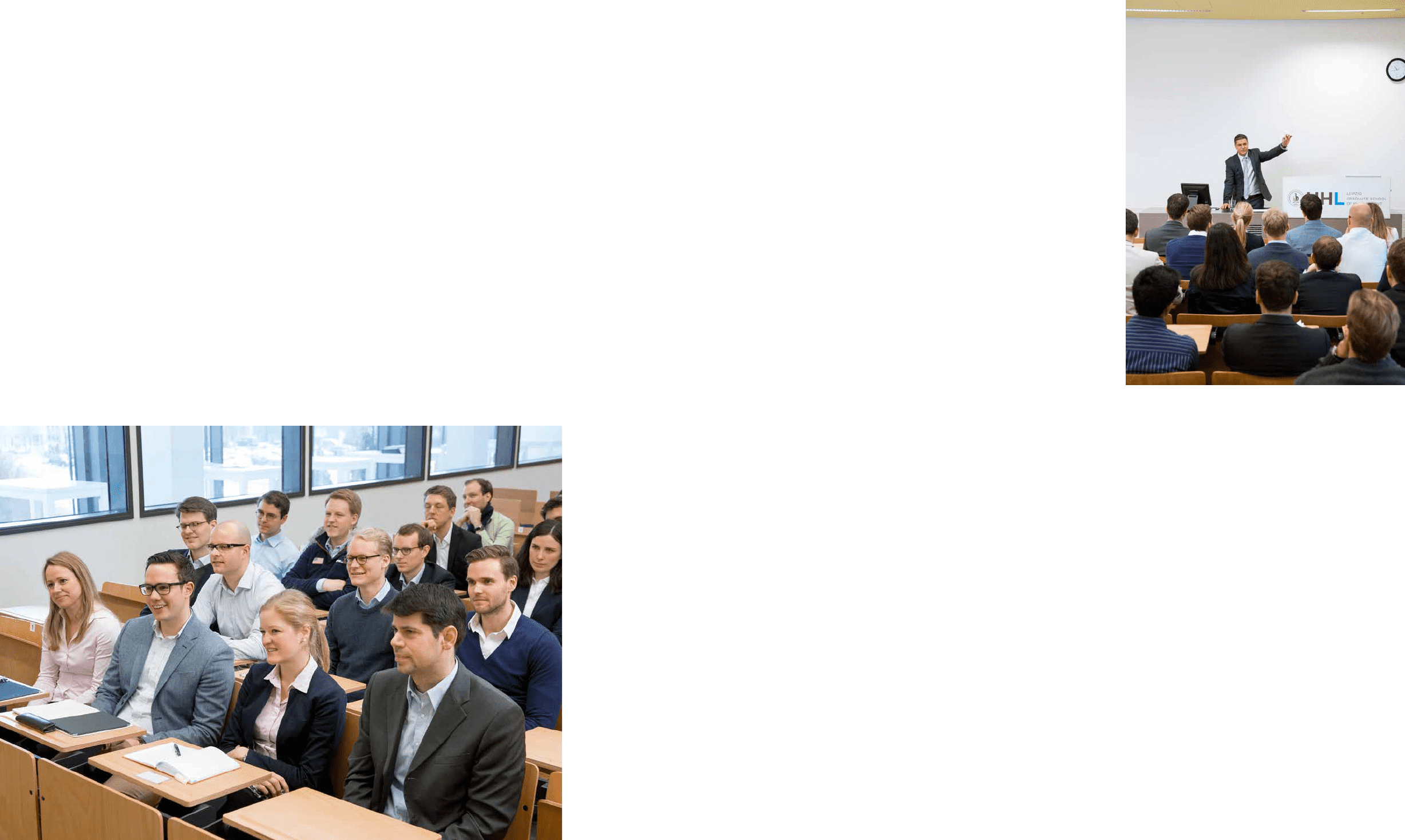
062 063
What in your view are concrete measures
to help stricken states get back on their
feet?
States in crisis must improve competitive-
ness, in particular through internal eorts.
Structural reforms to the labour market
that can lead to reduced incidental wage
costs, more consistent job placement pro-
grammes and subsidies for those setting
up a new business would be examples for
such activities. Another measure specic
to Greece might be further privatization,
so as to attract more private investors to
the country. One could also see targeted
overarching structural programmes to
increase the competitiveness of the
states in the eurozone. These might be
investments in the energy structure, the
transport infrastructure, expansion of the
broadband network or education.
Aren’t we living in paradoxical times?
Here within Europe we can see extremely
successful companies, yet at the same
time cheap money is being used to drive
the economy. The United States Federal
Reserve Bank pursued this policy for a
long time in that country, but it hasn’t
worked here in Europe. The desired eect
isn’t taking hold. Liquidity isn’t ending up
with companies, only with the banks. The
recent zero-interest policy has spelled
losses for those with savings, and a
centralization of the risks.
I see it precisely the same way. This is
why I’m warning about very signicant
risks. Fundamentally what I see in the
aforementioned purchase of government
bonds is the serious danger that the
incentives to save will disappear for public
funds. A great deal of money will be
spent – I’m formulating carefully here – on
projects that are not goal-oriented. What
we need in Europe is precisely the oppo-
site of that. We should not ease up on our
eorts to continue reforming our national
economies. What’s important is that there
is a focus on sustainable investment to
support a country’s competitiveness in
the medium and long time. As I’ve already
mentioned, we need a broad package of
measures. But sustainable reforms are
the only way to remain competitive in the
global economy for the long run.
CHALLENGES IN CHINA
Naturally what interests our students in
this regard is the strategy at Porsche.
You export almost 90 percent of all
vehicles built in Germany for international
sale. Your largest markets are the USA
and China. If you look at the unsatisfac-
tory trends in southern Europe and hold
them up against the annual sales records
in China, one gets the impression that
your prosperity has come to rely on
China, or hasn’t it?
Right now China is our most important
market, together with the USA, although it
is one we need to watch very closely. But
let me express at this point one very im-
portant item from Porsche’s point of view:
the crisis in the eurozone in particular has
armed our strategy of sustainable glo-
balization. Porsche is positioned properly
on the global stage right now. With the
right products on the right markets. This
allows us to deal with market uctuations.
We’ve been enjoying a great deal of suc-
cess in the USA, which helps compensate
for the crisis on the southern European
markets among other things. Even some
of the countries that just a few years
ago were being celebrated, Brazil for
example, are going through a soft period.
On the ip side, other emerging markets
such as South Korea are developing very
positively. We’ve built up our own import
organisation there in recent years. We’ll
continue pushing forward the expansion
of our dealer network in many promising
emerging markets.
How do you as a car maker regard the
current economic trends in China?
If you want to talk about China, you actu-
ally need to take a bit of a step back to
get a better understanding of the current
situation and the future challenges there.
If you drive through the large cities of
China, you’ll see giant, newly built resi-
dential buildings that are completely dark.
The houses are empty. Even now we can
already see a bit of a bubble forming for
the real estate market. Growth is already
hitting its limits. At the same time most of
the large cities are facing strong pollution
concerns. The tolerance values for air
pollution are several times higher than
ours. And even so the values are routinely
exceeded. In this regard, new vehicle reg-
istrations in the large cities like Peking are
increasingly being restricted. So we can’t
go around thinking that issues in China
won’t aect us for ten years. That would
be a big mistake. The goal is instead
to think broadly, with parallel strategies
across dierent elds, instead of betting
everything on one card. This applies for
the drive technology of the future as well.
FUTURE FACTOR E-MOBILITY
What has Porsche done to date in terms
of e-Mobility?
Our strategy is forward-looking, so we
of course have incorporated electric
mobility into our plans. And we’ve already
delivered some answers. Porsche is
currently the world’s only car maker
to oer three plug-in hybrid models in
the premium segment: the Panamera S
E-Hybrid, the Cayenne S E-Hybrid and the
918 Spyder supercar, which is already
sold out. Through these vehicles we’ve
put our innovative leadership to the test.
I’m interested to hear in highly concrete
terms what your expectations are for a
modern vehicle?
My observation is that the older genera-
tion mostly still just listens to radio when
they’re in the car. The younger generation
in particular demands entirely dierent
things from a vehicle. It’s already the
case that many people view their car as
The Leipzig
location


